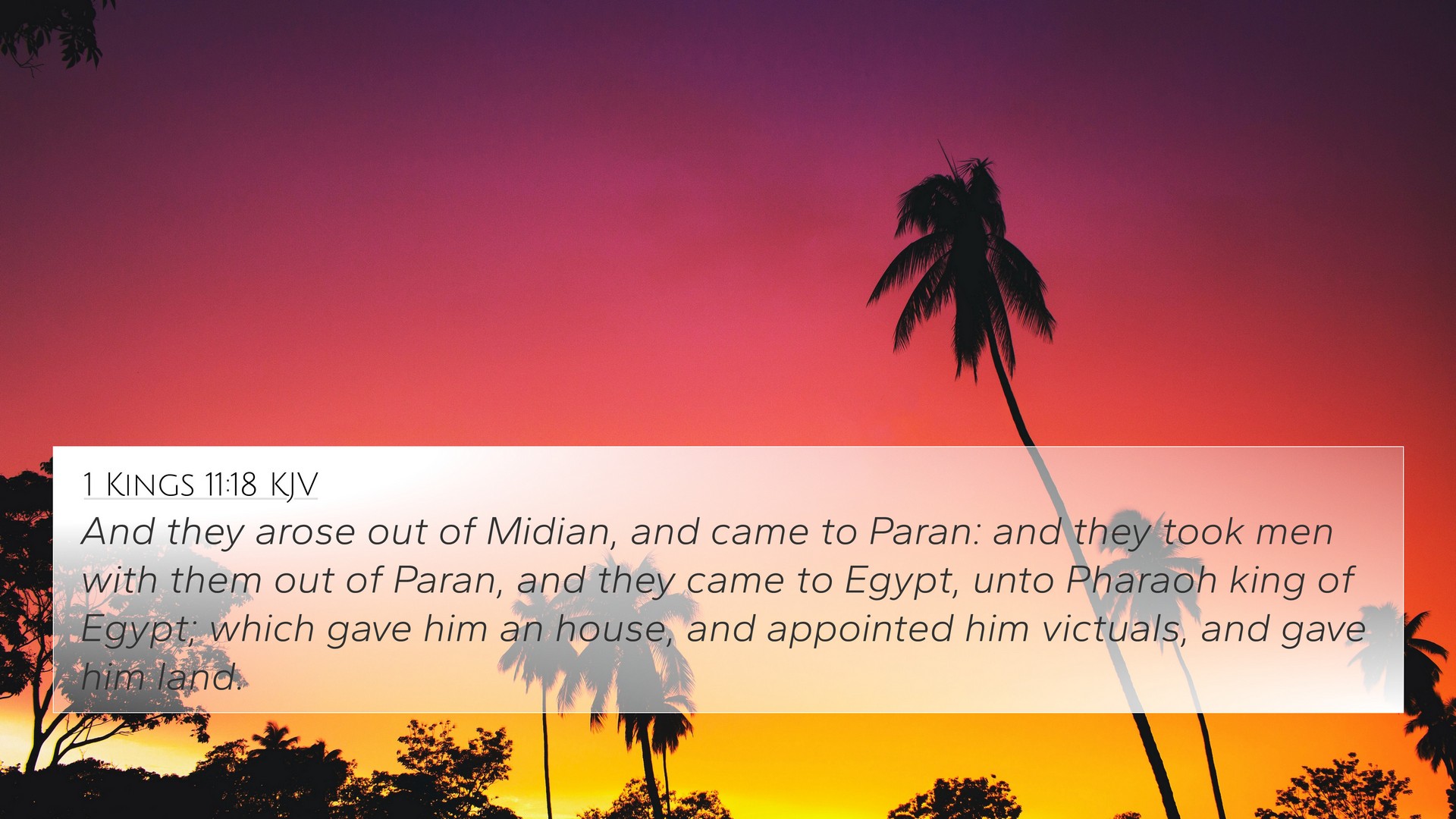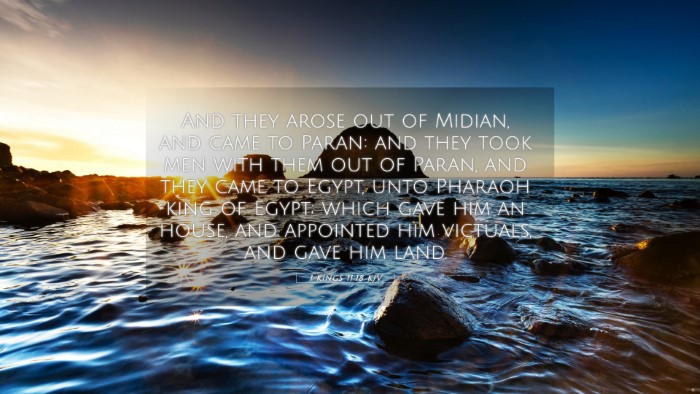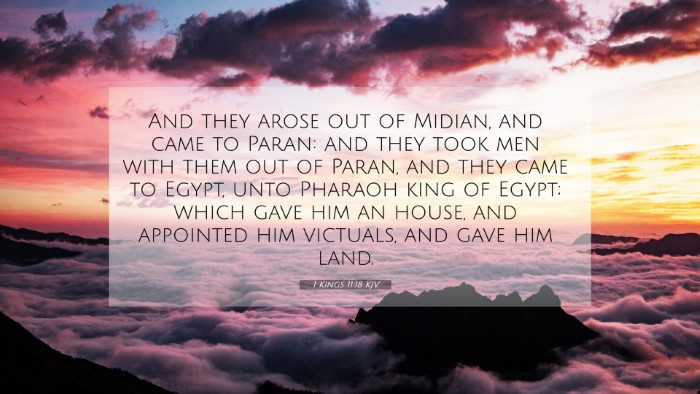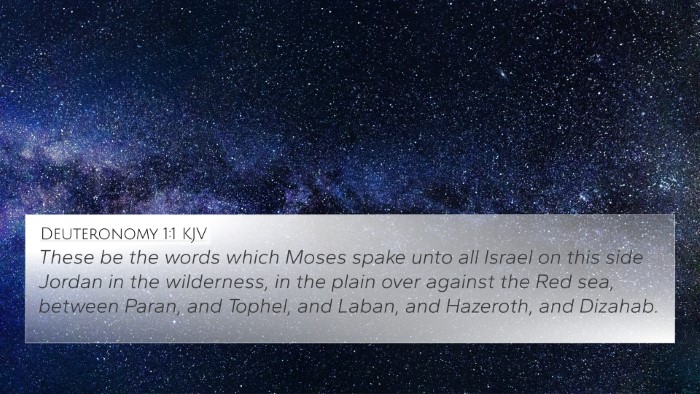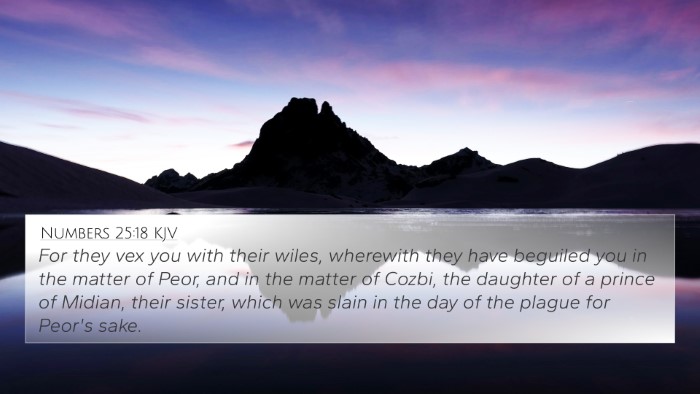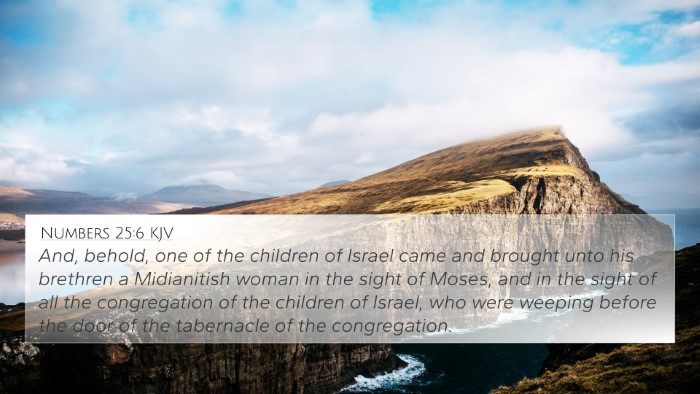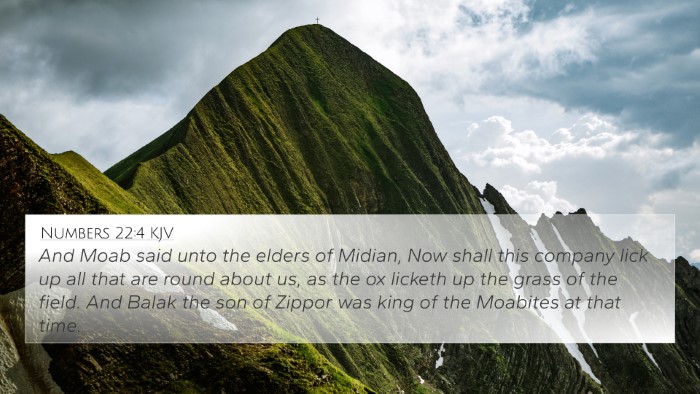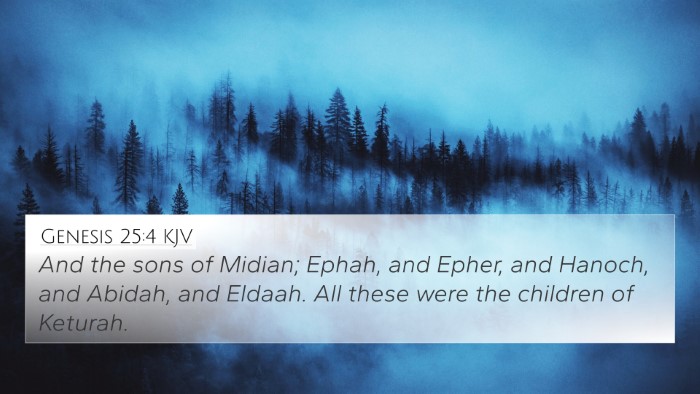Bible Verse: 1 Kings 11:18
Verse Text: "And they arose out of Midian, and came to Paran: and they took men with them out of Paran, and they came to Egypt, unto Pharaoh king of Egypt; which gave him an house, and appointed him victuals, and gave him land."
Summary of 1 Kings 11:18
This verse depicts the journey of Hadad, a character involved in the conflict during King Solomon's reign. Having fled from Israel after the death of David, he returns to confront the Israelites as an adversary, seeking support in Egypt. This passage requires careful exploration of themes such as political alliances, the consequences of Solomon's idolatry, and the implications for Israel’s future.
Commentary Insights
-
Matthew Henry's Commentary:
Henry emphasizes the significance of Hadad's escape and subsequent actions, noting that God's providence allows Hadad to rise against Solomon. This plot indicates a consequence of Solomon's deviation from God's commandments, demonstrating that idolatry leads to political turmoil and unrest. Henry also draws attention to the historical relevance of Hadad's return, foreshadowing further strife for Israel.
-
Albert Barnes' Notes:
Barnes observes that Hadad's allegiance with Egypt highlights the political dynamics of the time. His commentary reflects on how Solomon's choices invite opposition and culminate in the division of the kingdom. Barnes further relates this to the genealogical and geographical significance of Midian and Paran. He emphasizes the theme of divine justice in the unfolding events, culminating in lessons of faithfulness.
-
Adam Clarke's Commentary:
Clarke interprets the verse within the framework of covenantal faithfulness. He suggests that the events following Hadad's return illustrate the long-lasting effects of unfaithfulness to God's command. Clarke also connects Hadad’s actions with future conflicts in the kingdom, portraying the inevitability of divine judgment upon the leadership that turns away from God.
Thematic Connections and Cross-References
- 1 Kings 11:1-2: Solomon's foreign wives and their influence, leading to idolatry.
- 2 Samuel 7:14: God's promise regarding David’s lineage and the implication of keeping the covenant.
- Exodus 10:1-2: God's sovereign control over nations and events mirrors the narrative of Hadad's rise.
- Jeremiah 46:25: Connection of Egypt and neighboring nations in Israel’s history.
- Isaiah 19:23: Futures relations and turmoil involving Egypt, illustrating ongoing political tensions.
- 1 Kings 14:30: Further implications of divisions within Israel and ongoing strife as a result of idolatry.
- Matthew 12:42: The reference to the Queen of the South relates back through history, emphasizing wisdom in governance.
Conclusion: Understanding 1 Kings 11:18
In summary, 1 Kings 11:18 serves as a critical turning point reflecting the consequences of disobedience to God’s commandments and provides a backdrop for understanding the historical narrative of Israel during and after Solomon's reign. Through a comparative analysis with other biblical texts and cross-references, this verse invites a deeper consideration of the intertwined fates that evolve from faithfulness versus unfaithfulness in both politics and spirituality.
Further Study Tools
- Bible concordance for referencing similar texts.
- Cross-reference Bible study guides to explore connections.
- Bible reference resources for deeper theological understanding.
- Tools for Bible cross-referencing to aid in study.
- Comprehensive Bible cross-reference materials for thematic explorations.
Keywords and User Intent
This study involves searching for Bible verses that relate to 1 Kings 11:18, connecting Old and New Testament themes, identifying detailed cross-references in biblical texts, and understanding the political and spiritual dimensions illustrated through scripture. By employing these cross-referencing methods, readers can enrich their study and gain a clearer insight into divine sovereignty and human agency as portrayed in this significant biblical narrative.
